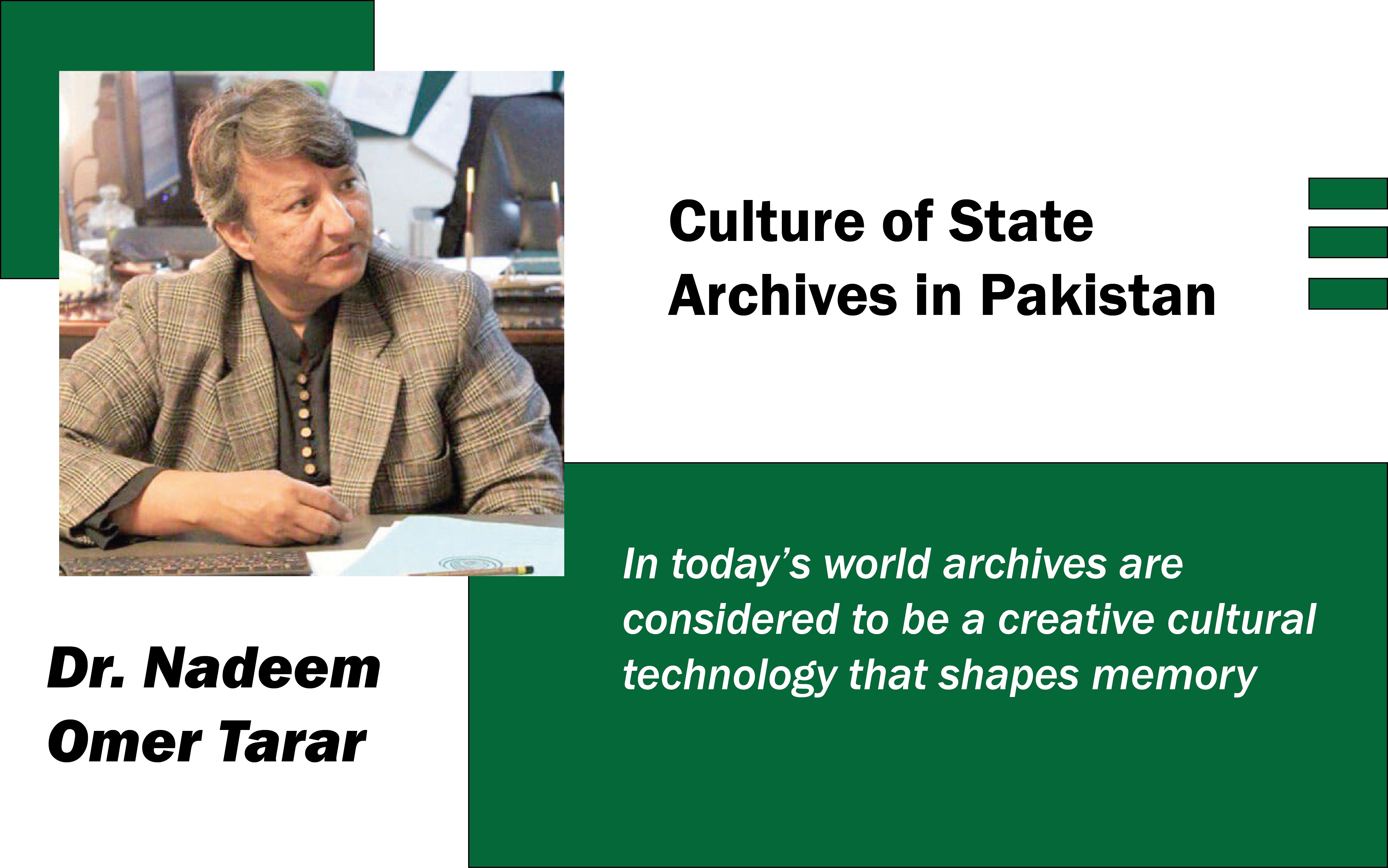Culture of State Archives in Pakistan
Dr. Nadeem Omer Tarar
Archives as an institution of the modern state has predated the British colonial state in South Asia. The practice of archiving has been a standard bureaucratic norm of the Mughal state in India. Daftarkhana (record office) was a special building in royal palace and forts, such as Lahore Fort and Fathepur Sikri which was designed to hold the imperial records. A dedicated staff was appointed to meticulously prepare, preserve and maintain copies of all official records. Ain-a-Akbari, (administration of Akbar) – the voluminous part of Akbarnama, authored by court historian Abul Fazil in the 16th century would not have been possible without an elaborate system of state record keeping.
Under the British rule in India, the imperial archive was turned into technologies of power, conquest, and hegemony. Power and control are rooted in the very etymology of the English language term “archive”. The twin etymological roots of the word, the Latin archivum, means the residence of the magistrate and the Greek term arkhe refers to command and govern. As repository of official records, the colonial archive ordered colonial and post-colonial information order, by setting up templates of knowledge, and following criteria of evidence, proof and testimony. The colonial state in Punjab was managed by British officials who were professionally trained to rule by the pen, and set standards of report writing, diffused throughout the administrative hierarchy. Judicial and revenue records held their primacy over other kinds of general records and were archived at the office of district government.
Pakistani state built on the iron frame of colonial bureaucracy, melted away into the post-colonial chaos and fragmented nationalism. If the colonial state ruled by the creation of records, the post-colonial state governed by the fabrication of records. From the forged claims of evacuee property at the eve of independence, to the outright elimination of records of political development, there is a long history of authoritarian rule through reworking of records. As a corollary, the records are locked away in the archives under the watchful eyes of the state and public access to the records is restricted. With no clearly enacted provisions guaranteeing public access to the records after a regular term of years, any academic request for access to these records is generally met by official skepticism or even outright rejection, unless powerfully supported.
In today’s world archives are considered to be a creative cultural technology that shapes memory, making it possible to write history while simultaneously shaping it. Archives, it is said, create documents and the past. They exercise a profound influence not only on their contents, but also on the form and function of the relationship between the ruler and the ruled. While archives serve as a collective memory of nation, they are also the primary condition for the democratic accountability of the state. The conditions of archives in Pakistan are a testament to the state of governance in the country. Public access to the records, enshrined in the constitution is an indicator of the transparency of the administration of the state. The National Archives of Pakistan, remains to be the most neglected department of the federal government, which if allowed to function can become hub of multi-disciplinary research on the history of Pakistan.
Although the state records are considered permanent records, yet a large part of the record is officially scheduled for destruction after a prescribed number of years. From public sector intuitions of higher learning to the ministries of the provincial and federal government in Pakistan, the shredding of outdated and discarded official records is preferred over their preservation. Often the records are destroyed and dumped without giving sufficient attention to the historical importance of such records. The potential of state records as source material for historical, economic and social research is nowhere being realized in Pakistan. Not even the oldest university in Pakistan, such as Punjab University or Peshawar University, has archived the records of their institutions, resulting in loss of unique sources for writing the intellectual histories of academic disciplines. With a loss of official records of greatest value as primary sources, the history of state turns into fiction, which can be invented and reinvented, at will.
What needs stressing now is that unless some comprehensive and effective action is taken soon, large parts of the historical heritage of Pakistan will continue to disintegrate or disappear, and opportunities for achieving a fuller and fresher understanding of the history of the present will be lost.


